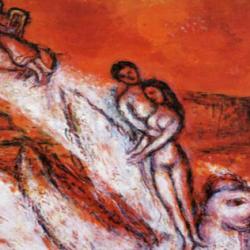Solomon pursued knowledge and wisdom, and concluded that the pursuit was no more than vapor and shepherding wind, and besides the more he knew the more pain and grief he suffered (1:17-18). There is so much in this wispy world that we cannot know:
Whether the result of our works will be universal love or universal hatred (9:1).
The time of our death (9:12).
Coming misfortunes (11:2).
The path of the wind, the knitting of bones in a woman’s womb, the deeds of God (11:5-6).
“And so the conclusion is: concluded that man cannot discover the work which has been done under the sun Even though man should seek laboriously, he will not discover; and though the wise man should say, ‘I know,’ he cannot discover” (8:17). Horatio’s “that can I” is the vain confidence of a recent university graduate.
Yet, Solomon is no skeptic, as is evident from the periodic statements about what “I know” and his exhortations to his readers to “know.” Some of his assured statements are empirically based: “I know” that the wise man and the fool both die (2:14), and the living know they will die (9:5), presumably through a process of induction.
But several of the things that Solomon knows are not empirically verifiable nor rationally deducible. They are in the realm of DOXA rather than EPISTEME, yet Solomon says he knows:
“I know that there is nothing better for them than to rejoice and to do good in one’s lifetime” (3:12).
“I know that everything God does will remain forever; there is nothing to add to it and there is nothing to take from it, for God has so worked that men should fear Him” (3:14).
“Rejoice, young man, during your childhood, and let your heart be pleasant during the days of young manhood. And follow the impulses of your heart and the desires of your eyes yet know that God will bring you to judgment for all these things” (11:9).
These things appear to be among the most certain things Solomon affirms, as certain in some ways as the inductive conclusion that all die. But they are based purely on faith.














